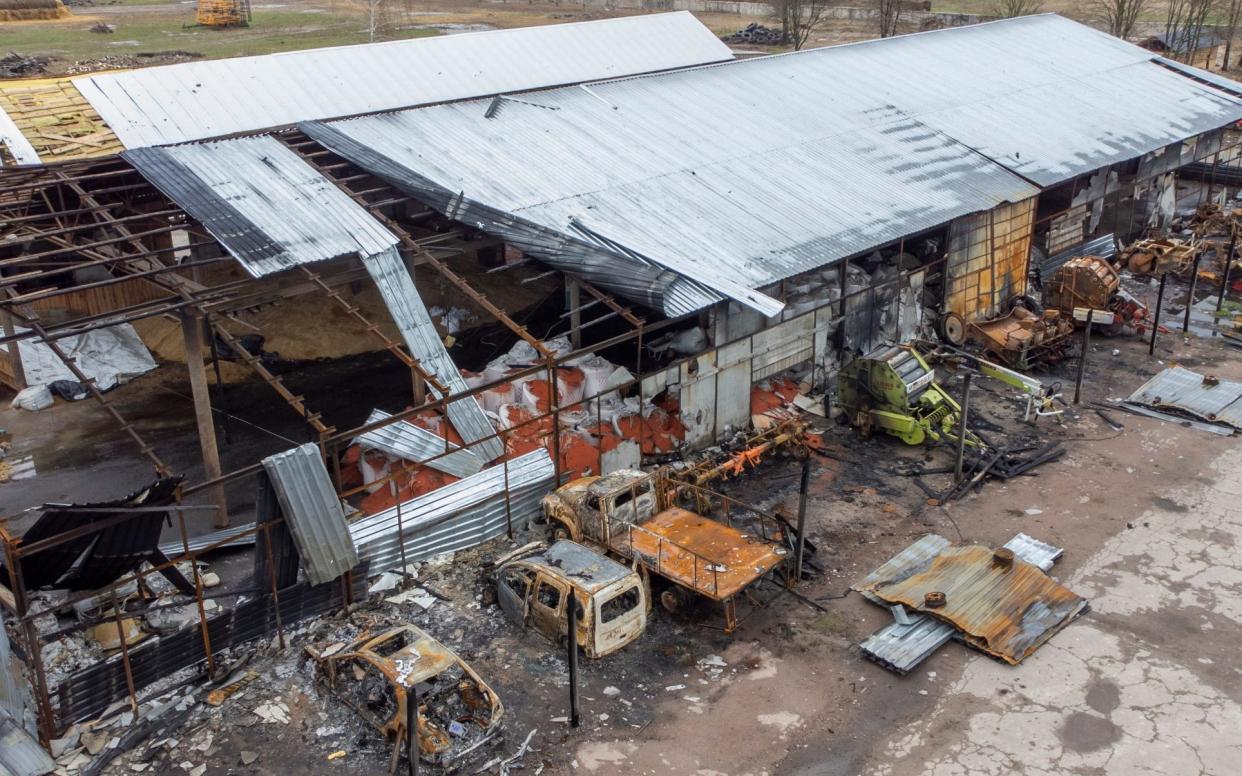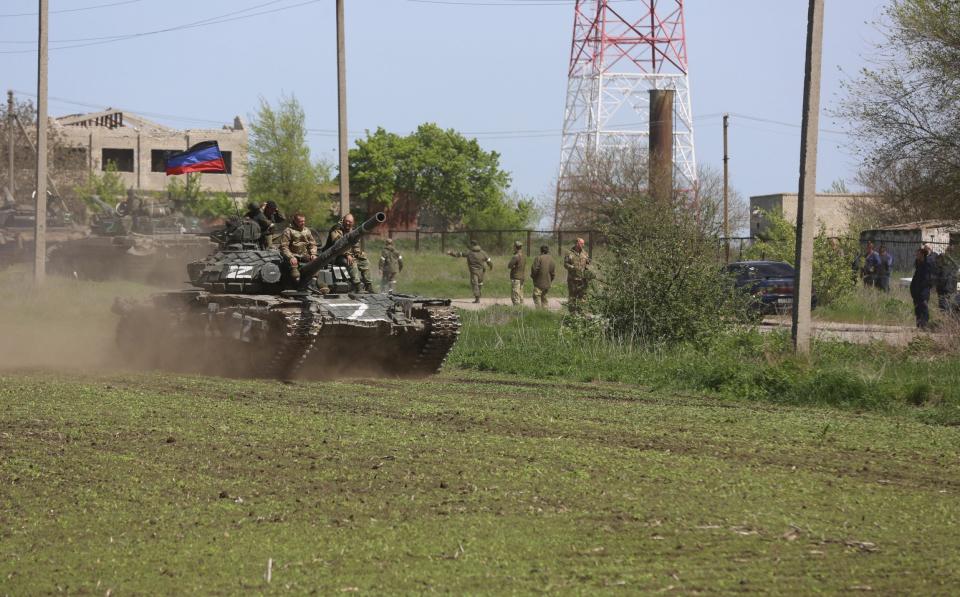Vladimir Putin 'weaponising' world's food supplies

- Oops!Something went wrong.Please try again later.
Vladimir Putin is “weaponising” global food supplies by stealing grain and destroying agricultural equipment as part of his war in Ukraine, Western officials have said.
The Kremlin is believed to be dismantling infrastructure needed for food production and blocking ports that are vital in shipping cereals out of the country, which is known as the “breadbasket of Europe”.
Officials fear Russia has embarked on a “deliberate policy” of disrupting food supplies, sparking a global crisis and raising the prospect of starvation in developing countries.
Vladimir Putin's army has destroyed silos and other food production infrastructure in cities including Kherson, Luhansk and Donetsk, according to Western sources.
The UN estimates that 1.7bn people in over 100 countries are being impacted by the current surge in food, energy and commodity prices.
A Western official said: “[Russia] has exacerbated a pre-existing bad situation and has created a major threat to global food security through a deliberate policy of weaponisation of global food supply.”
They added that record grocery bills have proved the “last straw” for many poor countries already on the brink of a crisis, and said that intelligence officials are closely monitoring the situation over fears of mass unrest across Africa and the Middle East.
Sri Lanka defaulted on its debts for the first time since independence on Wednesday night following weeks of violent protests over the cost of living.
It comes after Andrew Bailey, Governor of the Bank of England, warned on Monday of “apocalyptic” food price rises and raised concerns about a disastrous impact on the developing world.
Official figures revealed on Wednesday that grocery bills in the UK rose at their fastest pace for more than a decade in April, helping to drive inflation to a 40-year high of 9pc.
The invasion of Ukraine has sent world food prices to record highs and caused key agricultural costs, including fuel and fertiliser, to rocket.
In Britain, the cost of cooking oils, dairy and everyday staples such as pasta is rapidly rising, and the crisis is far more severe in countries where food accounts for a larger share of households’ costs.

Ukraine and Russia produce a quarter of global wheat exports and a fifth of corn output between them, but the conflict is also pushing up other costs for farmers worldwide. Fuel, fertiliser and feed prices have jumped following the invasion with Ukraine producing half of global sunflower oil.
The UN warned earlier this week that almost 25m tonnes of wheat in Ukrainian warehouses is being left to rot because the supplies cannot leave the country. It also said that some grain storage had been destroyed in the fighting in Ukraine.
It came as Moscow said on Wednesday that nearly 700 more Ukrainian fighters had surrendered in Mariupol, claims yet to be confirmed by Ukraine.
Kyiv had ordered its garrison in Mariupol to stand down, but a pro-Russian separatist leader said commanders were still in tunnels beneath the Azovstal steelworks.
On Wednesday, a Russian soldier pleaded guilty to killing a Ukrainian civilian in the first war crimes trial to be held since the conflict started. The hearing in a Kyiv courtroom is one of a series of trials against Russian servicemen for atrocities committed in the invasion.
Meanwhile, Turkey vetoed a Nato decision on whether to accept Finland and Sweden into the military alliance in the first official vote on membership.
At a “classified” meeting of Nato ambassadors in Brussels, the Turkish representative stopped a vote on their applications, which had been officially submitted earlier in the day, according to sources with knowledge of the discussion.
The meeting was called in the hope of agreeing an accelerated accession process in order to head off Russian threats of aggression aimed at the Nordic nations.

